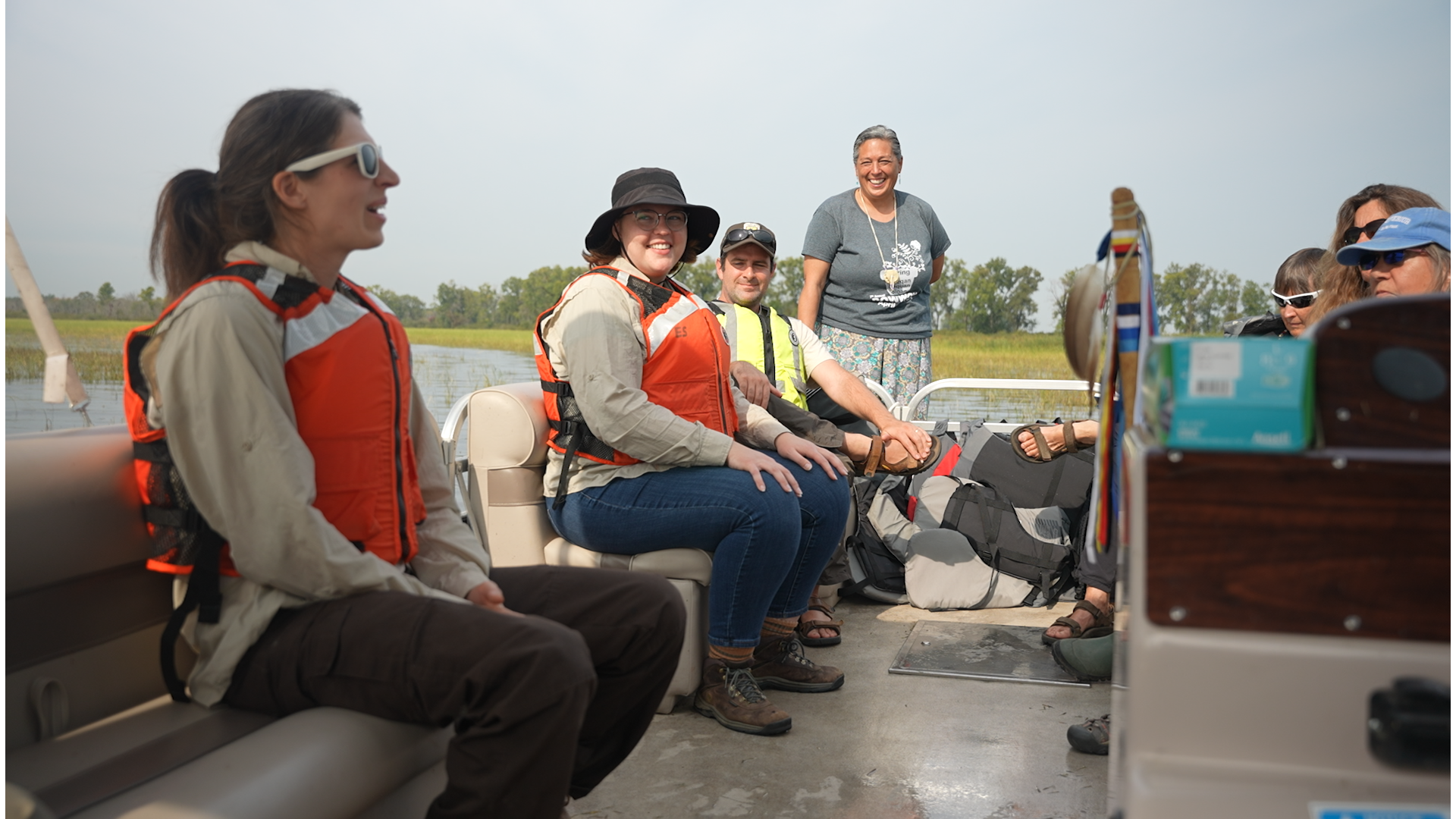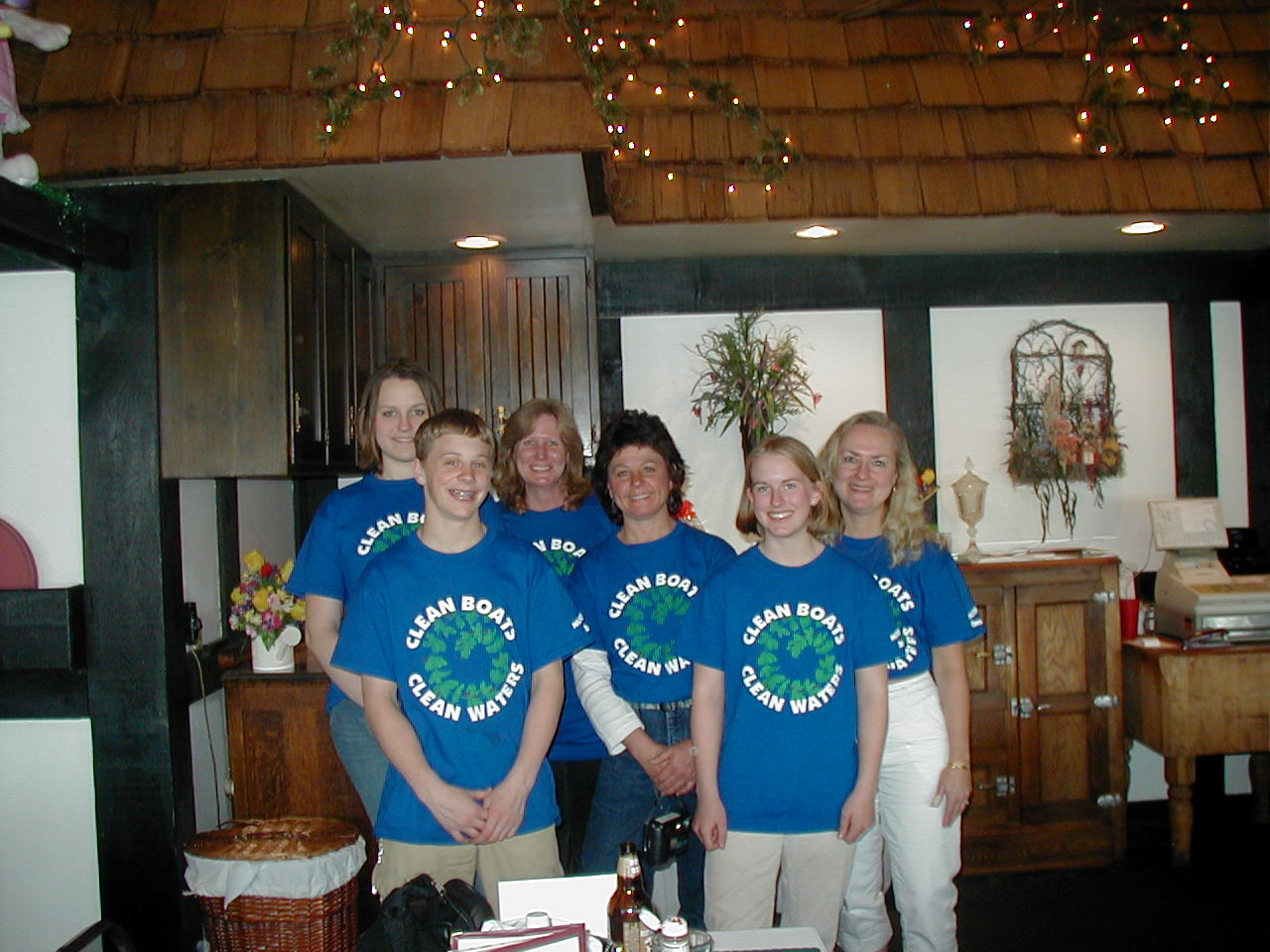By Carolyn Rumery Betz
Wisconsin’s Water Library has croaked, swam and quacked its way through story hours with preschools, elementary schools, after-school programs and the public library as part of its outreach mission. The library, based out the University of Wisconsin’s Aquatic Sciences Center, has a top-notch children’s collection of books, videos and DVDs focusing on everything related to water, including the critters that live in or around water.
The story-hour road show developed in support of the 2010 statewide summer reading program, “Make a Splash—Read.” But the effort that continues in 2011and beyond is also a reflection of Special Librarian Anne Moser’s initiative to reach underserved populations around the state. These include groups that may not have high literacy rates or use their community’s public library often.
Moser has visited the Neenk Chungra Head Start Program in the Wisconsin Dells multiple times. At one session, the theme was waterfowl. A dozen children aged three through five sat on the alphabet rug and enthusiastically listened to several books and poems about ducks, swans and cranes. After singing and acting out a song about ducks, the children moved to two tables where they created their own ducks using paper plates, construction paper, scissors and markers.
The children were excited to learn along with the “1-2-3” themed hour in January 2011. Since the craft involved making a paper octopus, the children were able to count to eight forwards, backwards and by two’s. The craft also hones fine-motor skills by using scissors, markers and glue sticks.
“It’s so good for the children,” said Iwona Pakos, the director and lead teacher at the Neenk Chungra Head Start Program.
Moser brought a frog-themed story and craft hour to the Ho-Chunk Youth and Learning Center’s after-school program in Baraboo which serves students from multiple Ho-Chunk schools in the region. The middle-school children at the center were able to act as mentors to the younger children involved in the story and craft activities, especially in folding origami frogs.
Moser has also collaborated with Anne Horjus, program coordinator for youth services at the Baraboo Public Library. Horjus hosts regularly scheduled preschool story hours where Moser has introduced the world of water to the participants who attend with a parent, grandparent, or other adult.
“Libraries like special guests to come and do special programming,” Moser said. “I see this as a great opportunity to bring science and literacy together.”
The children’s collection was started with a grant from the Friends of UW’s Libraries to support a story hour effort for an early-elementary story hour program for an underserved community in Madison. The collection, as with the entire Wisconsin’s Water Library, is unique in that it is part of the University of Wisconsin System, but is open to the public. Books or other materials may be requested by patrons and delivered to them via their own local library.
To find out more about how to access the collection or to contact Moser about her story hours, visit the Wisconsin Water Library website: aqua.wisc.edu/waterlibrary/.





